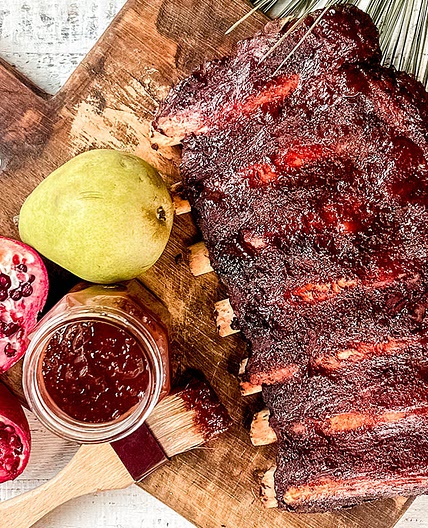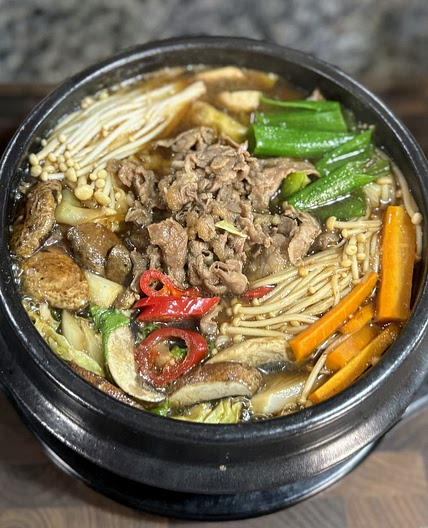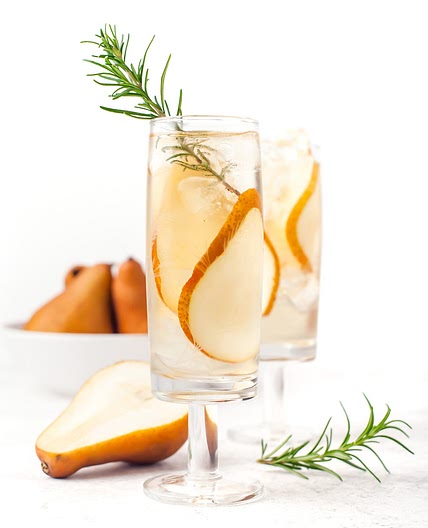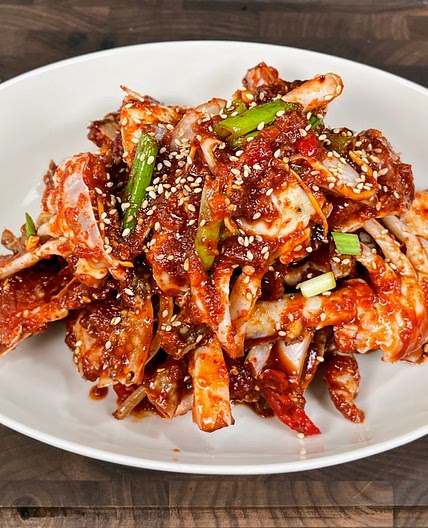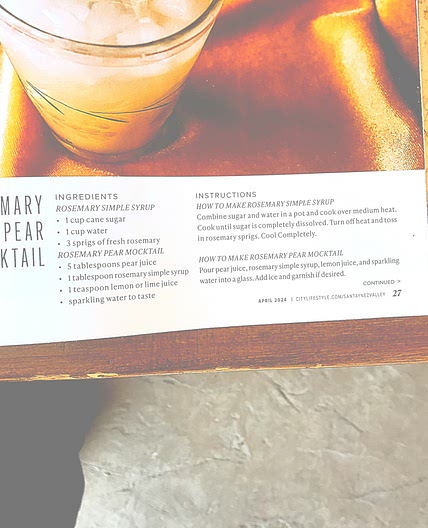Pear juice
 Pantry
PantryPear juice is a sweet and tasty juice which is high in nutrients, just like the fruit it’s made from. Although not quite as popular as its fruit juice counterparts, like apple or orange juice, pear juice can add some essential vitamins and nutrients to your diet. Some of the benefits of pear juice include high levels of potassium (which can help reduce blood pressure and decrease the risk of heart disease), flavonoid antioxidants and other vitamins and minerals like vitamin C, K, and copper. However, remember that fruit juice is high in sugar and should be consumed in moderation. Pear juice can be found in the juice aisle of your local grocery store, or it can be made at home. To make fresh pear juice, you’ll need 4 ripe pears of any variety. Prepare the pears by peeling them and removing the stem. To make pear juice with a juicer, simply cut the pears into larger chunks and run them through the juicer. Add ½-1 tablespoon of lemon juice to prevent the pear juice from oxidizing and turning brown. If you don’t have a juicer at home, you can also use a blender. Once blended, sieve the juice through a mesh strainer, discard the pulp, and enjoy! Fresh pear juice is best consumed immediately, but you can keep it covered in the fridge for a few days after juicing. Aside from drinking on its own, pear juice is also a great addition to meat marinades. Asian pear juice is commonly used in Korean barbecue marinades, as it contains enzymes that help to tenderize the meat.
Pear juice nutrition and vitamin info per 100g
| Energy | 49.95000076293945 | kcal |
| Total Fat | 0.07000000029802322 | g |
| Carbohydrate Total | 12.9399995803833 | g |
| Sugars | 9.699999809265137 | g |
| Protein | 0.3400000035762787 | g |
| Sodium | 4 | mg |
| Fiber | 1.600000023841858 | g |
